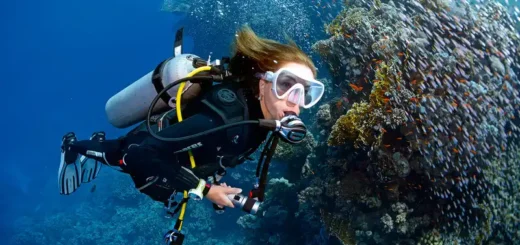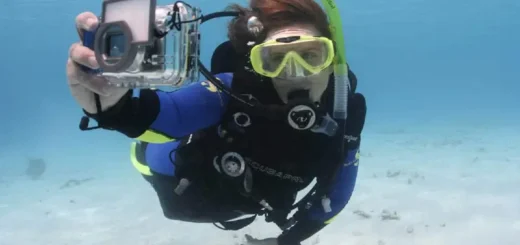The Basics of Scuba Diving: What You Need to Know Before You Start
Have you ever have dreamed of floating weightlessly like an astronaut, investigating unusual species like a field researcher, or looking for lost objects like a treasure hunter? Scuba diving can make these dreams a reality! Scuba diving is relatively easy and only requires a short period of training to get started. Whether your goal in diving is fish watching, ocean conservation or simply meeting other adventurous people, 70% of the globe becomes accessible to you the moment you learn to breathe underwater!
Here are the basics of what you need to know before you start scuba diving.
1. What is scuba diving?
Scuba diving is an activity in which you breathe underwater using a tank of compressed air. This allows you to stay underwater for long periods of time, giving you the opportunity to explore the underwater world in a way that would not be possible if you were holding your breath.
2. What do I need to start scuba diving?
The only equipment you need to start scuba diving is a mask, fins, snorkel and a tank of compressed air. Of course, there is a lot more equipment that you can use to make your diving experience more enjoyable, but these are the only items that are absolutely essential.
3. How do I get certified to scuba dive?
In order to scuba dive, you must first be certified by taking a scuba diving course. These courses are offered by many different organizations, and they typically last for a period of several days. During the course, you will learn the basic safety skills that are necessary for scuba diving. Once you have completed the course, you will be issued a certification card that will allow you to rent scuba diving equipment and fill your tanks with air.
4. Where can I go scuba diving?
The beauty of scuba diving is that it can be done in many different places. You can scuba dive in the ocean, in lakes, in rivers and even in swimming pools. There are also a number of scuba diving resorts around the world where you can vacation and dive in some of the most beautiful places on earth.
5. What will I see when I go scuba diving?
The underwater world is full of amazing things to see. You can see colorful fish, coral reefs, shipwrecks and a variety of other objects. And, of course, you can also see the amazing underwater scenery.
6. Is scuba diving safe?
Scuba diving is a relatively safe activity, but there are some risks involved. The most common risks are decompression sickness and air embolism, both of which can be avoided by following the safety guidelines that are taught in scuba diving courses.
7. What is the best time of year to go scuba diving?
The best time of year to go scuba diving depends on where you want to dive. In general, the water is warmest and the visibility is best in the summer months. However, there are some places where the conditions are better in the winter.
8. How deep can I go scuba diving?
The depth that you can scuba dive to is limited by your certification level. Most beginner scuba divers are only certified to dive to a depth of 60 feet (18 meters). However, there are a number of advanced courses that you can take that will allow you to dive deeper.
9. How long can I stay underwater?
The length of time that you can stay underwater is limited by the amount of air in your tank. Most scuba tanks contain enough air to allow you to stay underwater for about an hour. Of course, you will use up air more quickly if you are diving deeper or if you are swimming rapidly.
10. What should I do if I start to feel uncomfortable while I am scuba diving?
If you start to feel uncomfortable while you are scuba diving, the best thing to do is to signal to your diving partner that you want to go up. Most scuba diving courses teach a set of hand signals that can be used to communicate underwater.
Scuba diving is a great way to explore the underwater world. By following the basic safety guidelines, you can minimize the risks and have a great time.






